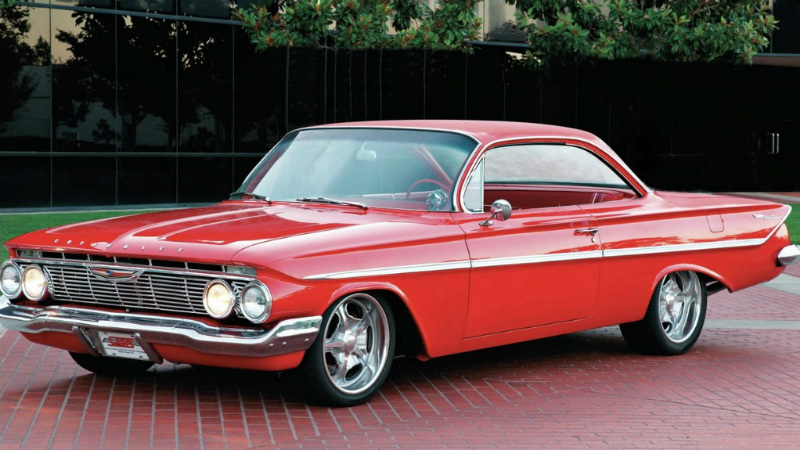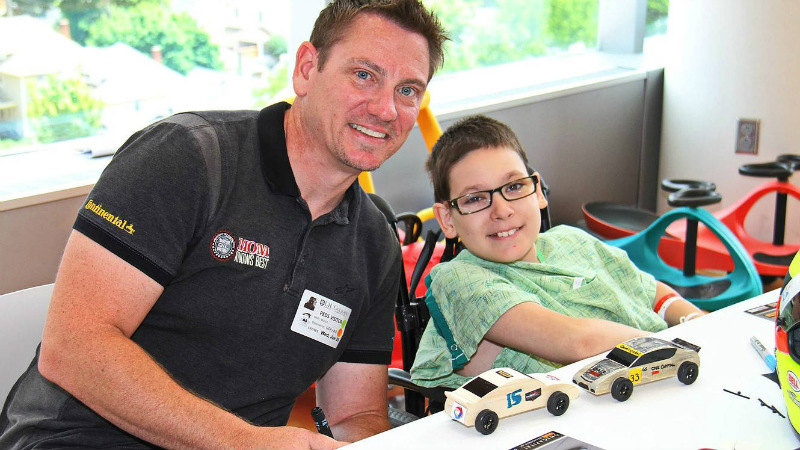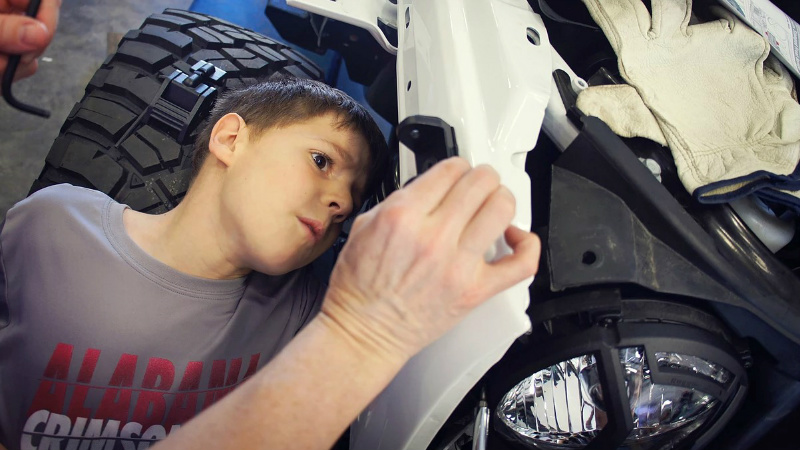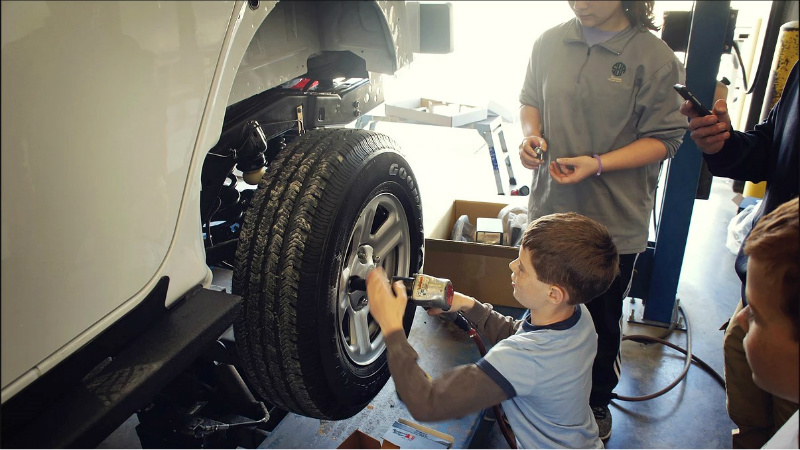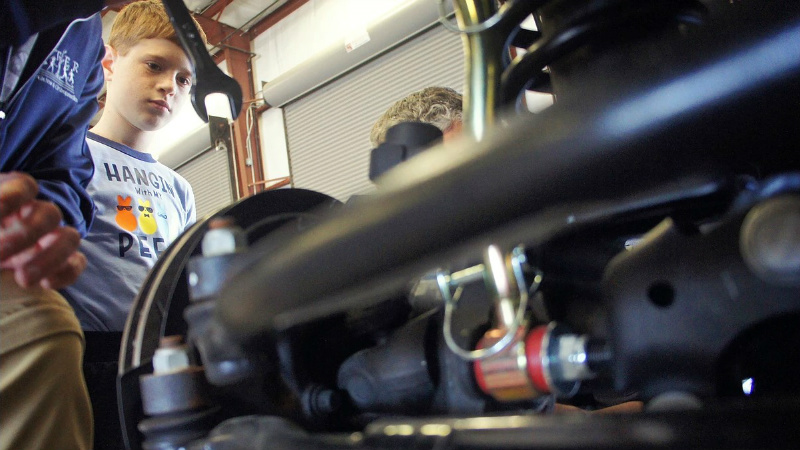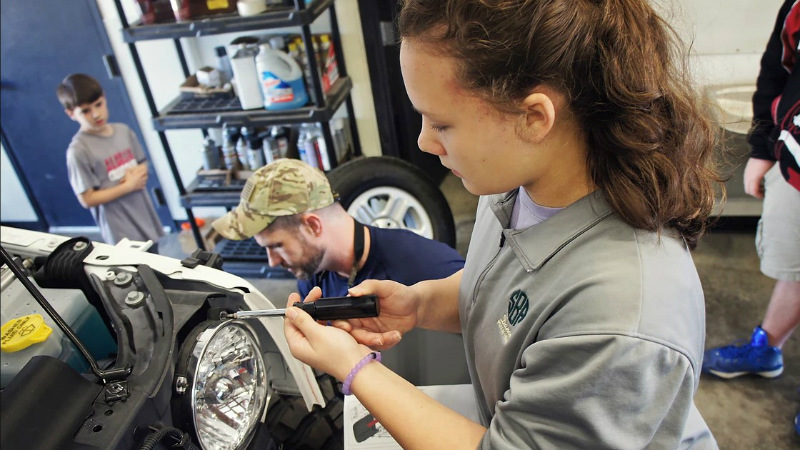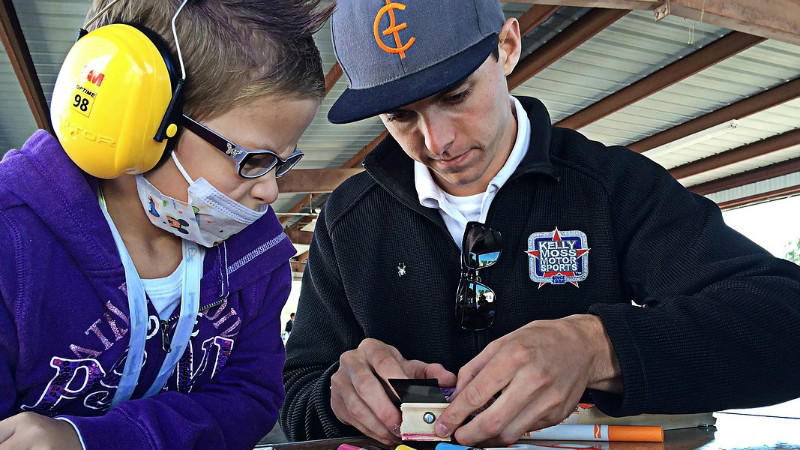Austin Hatcher Foundation
FollowAddress:
232 East 11th Street
Chattanooga , TN 37402
Phone: 423-243-3471
Email: info@hatcherfoundation.org
Website: https://www.hatcherfoundation.org/
The Austin Hatcher Foundation has grown exponentially over it’s first ten years providing essential specialized intervention services for over 72,000 children and their families who struggle with the many challenges of pediatric cancer.
In the pediatric cancer setting the industrial arts program serves a multipurpose function. The obvious role is to introduce and educate the child with cancer, their siblings and parents to basic “shop” skills. Secondary and less obvious roles are to:
- Improve and develop family and team-building skills, 2. Treat and improve coordination deficits resulting from the chemotherapy, radiation, and/or surgical treatment necessary to rid the child of cancer, 3. Treat and improve behavioral, memory and learning deficits that result from the cancer and its effects on each family member. These programs will be available for individuals to participate in singularly and as groups or as families and will include the Hot Rodders of Tomorrow engine challenge and Driving Performance Improvement Program.
Hot Rodders of Tomorrow engine challenge: Participants learn to tear down and properly rebuild a motor in teams. Teams are invited to compete nationally to win over $3.8 million dollars in scholarships. Hot Rodders of Tomorrow programs the brainchild of Vic Edelbrock and is nationally executed by Rodney Bingham, Hot Rodders of Tomorrow’s President. The Austin Hatcher Foundation’s team will be composed of families and/or children of any age diagnosed with childhood cancer and will participate as an exhibition team for 2017.
Individuals age 6 years up are eligible to participate in the industrial arts program and are estimated to receive 150-300 hours of classroom and “hand-on” training/practice.
Driving Performance Improvement Program: Many children who survive childhood cancer suffer central nervous system injury due to the disease and/or its treatment. The two most common pediatric malignancies, leukemias and brain tumors, are associated with central nervous system (CNS) involvement. While considerable work has been conducted establishing resultant cognitive and behavioral deficits and reduced quality of life, it has only been over the past one to two decades that clinicians and researchers have begun to make concerted efforts to rehabilitate these deficits. Impairments in sustained attention, working memory, processing speed and effective problem solving are reasonably common side effects of these malignancies and their treatments. These cognitive deficits can negatively impact learning, school performance, and overall quality of life. At present, research is ongoing to test and develop interventions designed to alleviate the neurocognitive late effects that characterize many pediatric cancer survivors. In addition, the Centers for Disease Control (CDC) reports Motor vehicle crashes are the leading cause for death in the U.S.A. for all teens from ages 16-19. This includes the population of teens that have struggled to survive the death-grip of childhood cancer and as a result of the cancer and related treatments begin their driving experience with impairments in sustained attention, working memory, processing speed and effective problem solving.
The CDC goes on to report Driving is a complex skill, one that must be practiced in order to be learned well. Teenagers' lack of driving experience, together with risk-taking behavior, puts them at heightened risk for crashes. The need for skill-building and driving supervision for new drivers is the basis for graduated driver licensing programs, which exist in all US states and Washington, DC. GDL provides longer practice periods (at least 30-60 hours of supervised driving practice), limits driving under high risk conditions for newly licensed drivers and requires greater participation of parents in their teens' learning-to-drive. Research suggests that the more comprehensive GDL programs are associated with reductions of 26% (15) to 41% (16) in fatal crashes and reductions of 16% (17) to 22% (18) in overall crashes, among 16-year-old drivers. When parents know their state’s GDL laws, they can help enforce the laws and, in effect, help keep their teen drivers safe.” The use of driving simulators provides individuals with a safe and engaging environment to practice and develop realistic driving skills. With the assistance of therapist, it is reasonable to expect that childhood cancer survivors can utilize simulators in a way much similar to professional race car drivers to improve their performance in the areas of sustained attention, working memory, processing speed and effective problem solving in ways that apply directly to real world settings and can improve their chance to survive and thrive into adulthood.
Pilot Study data as to the effectiveness of the intervention will be collected and reported. Academic research protocols/procedures will be followed. Estimated 50-100 participants’ ages 5-19 years old and have an IQ greater than 70 will complete a battery of neuropsychological and psychological tests pre and post intervention. Changes will be compared to an historical control group, and a group of siblings (n=40) who will also be recruited over the course of the project. Each participant will have a designated caregiver, usually the mother, who will also be involved in the study as indicated.
Parameter/Measures:
- Reaction times (processing speed) and potential changes in this through repeated experience with the simulator.
- Multi-tasking paradigm to increase executive function skills including processing speed and working memory and potentially increase generalizability. Siblings and/or matched controls.
- Compare results to group historical data for traditional cognitive remediation (CogMed).
- Compare long term teen driving data for study group to historical control
The Austin Hatcher Foundation for Pediatric Cancer is one of two Proud Charities of the International Motor Sports Association (IMSA), which sanctions the Weather Tech Sports Car Championship, the premier sports car series in North America, as well as the Continental Tire Sports Car Challenge, and five other development and single-make series.
The Austin Hatcher Foundation for Pediatric Cancer is in its third year as a “Proud Charity” of IMSA, a dynamic partnership that has dramatically raised awareness both for the Foundation and its admirable mission: to erase the effects of pediatric cancer on young patients and their families. As a Proud Charity of IMSA, the Foundation will work within all IMSA’s race series to create awareness, raise funds, and deliver its services in race cities across the United States.
Since its inception, the Austin Hatcher Foundation has been rooted in the motor sports community. At the forefront of the services the foundation offers is its Diversionary Therapy program in which race car drivers visit children’s hospitals in race cities to build and race the Foundation’s pinewood derby cars with sick children and their siblings. The Foundation also conducts its Fueling Potential: Racing to Win Healthy Lifestyle education program in elementary schools in race cities and elsewhere.
“Our relationships with IMSA and others in the automotive marketplace have enabled us to deliver services to over 70,000 people in 28 states and 38 hospitals over the past ten years.” said Amy Jo Osborn, President of the Austin Hatcher Foundation, “The racing community has also helped raise millions of dollars to support the delivery of those programs.
“The benefits of the programs the Austin Hatcher Foundation provides for children with cancer and their families is immeasurable so all of us at IMSA are honored to continue our relationship,” said David Pettit, IMSA Vice President, Marketing. “That said, the results of the visits our race car drivers, and many others involved in the sport, make to children’s hospitals across the country through the foundation can be measured in the smiles on the faces of everyone involved.”



